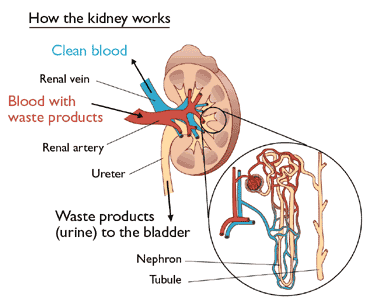By Pauline Garabedian-DeFreitas, managing director at Health Solutions Inc.
 As we acknowledge National Kidney Month, it’s important to also understand the role of our kidneys by educating ourselves on kidney disease and ultimately preventing kidney failure altogether.
As we acknowledge National Kidney Month, it’s important to also understand the role of our kidneys by educating ourselves on kidney disease and ultimately preventing kidney failure altogether.
Our kidneys play a vital and important role in our body. The kidneys help us filter our blood around the clock, regulate blood pressure, produce red blood cell production to prevent Anaemia, balance the body’s fluid, produce an active form of Vitamin D to promote healthy and strong bones.
When a patient is diagnosed with chronic kidney disease (CKD), it can cause a variety of medical issues from high blood pressure, elevated blood sugar, nerve damage, cardiovascular disease, weak bones, anaemia, stroke and kidney failure.
The primary risk factors of kidney disease are diabetes, high blood pressure, a family history of the disease and from being of African descent. In other words, those who are Afro-Caribbean in our population actually have a higher risk of developing kidney failure.
CKD slowly progresses over time with many patients suffering with CKD and not even knowing they have kidney disease until almost the loss of kidney function has occurred or kidney function has almost stopped. Therefore, early and periodic screening is very important.
The stages of CKD are mainly based on measured or estimated GFR (Glomerular Filtration Rate). There are five stages and they are:
- Stage 1 – kidney function is normal,
- Stage 2 – kidney function is minimally
- Stage 3 – there is moderate reduction in kidney function
- Stage 4 – there is severely reduced kidney function
- Stage 5 – patients more or less patients have lost 85% of kidney function and would be diagnosed with end stage renal disease (ESRD). It is at Stage 5 when patients would require treatment through haemodialysis, peritoneal dialysis or a kidney transplant to survive.
The two most common causes of kidney failure are diabetes and/or high blood pressure (hypertension). Possible other conditions which contribute to kidney damage are:
- Birth Defects
- Injury to the Kidney
- Issues with the arteries feeding the kidneys
- Backward flow of urine into the kidneys
- Autoimmune disorders such as Systemic Lupus Erythematosus
Other kidney diseases early symptoms of CKD is generally the same as many other illnesses hence why it is easily overlooked. Symptoms such as headaches, nausea, unexplained weight loss, itching/dry skin, and appetite loss. As the kidney function decreases, patients may exhibit symptoms such as swelling to hands, feet, face, ankles and the abdomen. Muscle cramps, bone pain, problems concentrating, shortness of breath, frequent hiccups, excessive thirst, breath odour, vomiting often in the morning and in females the loss of menstrual cycle. Because CKD is irreversible, it’s is very important to identify the cause of the disease and begin treatment plan as soon as possible to slow down the disease progression. Urine and blood tests are used to detect and monitor kidney disease. Some doctors may also ask that ultrasound is done and possible a biopsy of the kidney. Early detection and appropriate treatment may improve prognosis in all age groups and slow down disease progression. Kidney Day was on Thursday, March 10th, 2016 and was celebrated around the globe. This year’s theme is “Kidney Disease and Children. Act Early to Prevent It!”. Kidney disease can also affect children in various ways. Some cases where it can be treated without long-term consequences to life- threatening conditions. We want to bring attention to parents and caregivers the importance of identifying and urgently treating childhood kidney disease. We ask pregnant mothers to have prenatal screening and ensure the kidneys along with all other organs are developing and identify any birth defects, indicate if there is family history of kidney disease, attend and address any infections a child may have, speak with the doctor and indicate if there is family history of Lupus, any possible trauma or urinary blockage.
- Keep active every day
- Lower the intake of sugar in their daily diet
- Serve water instead of carbonated and sugar based drinks
- Reduce the amount of salt in their diet and cut back on processed food
- Maintain a healthy weight
- Use medication properly and don’t overuse certain pain medications
- Get regular check-ups
Practicing healthy habits at a young age is vital to preventing kidney disease. Many habits learned by kids can set the stage for kidney health as they get older.
Help your children protect their kidneys by following these golden rules:
Your kidneys play an important role in the daily workings of your body and help maintain your general health and well-being, so it makes good sense to take good care of them. Ensure to live healthy, if you suffer from diabetes and/or hypertension (high blood pressure) and consult your primary care physician to get screened and review your kidney function.
Family who struggled to keep woman alive now struggles to bury her





